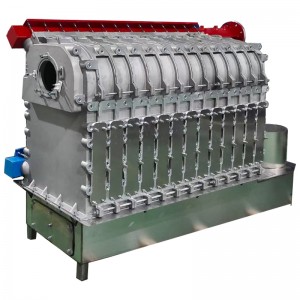- Afrikaans
- Albanian
- Amharic
- Arabic
- Armenian
- Azerbaijani
- Basque
- Belarusian
- Bengali
- Bosnian
- Bulgarian
- Catalan
- Cebuano
- China
- China (Taiwan)
- Corsican
- Croatian
- Czech
- Danish
- Dutch
- English
- Esperanto
- Estonian
- Finnish
- French
- Frisian
- Galician
- Georgian
- German
- Greek
- Gujarati
- Haitian Creole
- hausa
- hawaiian
- Hebrew
- Hindi
- Miao
- Hungarian
- Icelandic
- igbo
- Indonesian
- irish
- Italian
- Japanese
- Javanese
- Kannada
- kazakh
- Khmer
- Rwandese
- Korean
- Kurdish
- Kyrgyz
- Lao
- Latin
- Latvian
- Lithuanian
- Luxembourgish
- Macedonian
- Malgashi
- Malay
- Malayalam
- Maltese
- Maori
- Marathi
- Mongolian
- Myanmar
- Nepali
- Norwegian
- Norwegian
- Occitan
- Pashto
- Persian
- Polish
- Portuguese
- Punjabi
- Romanian
- Russian
- Samoan
- Scottish Gaelic
- Serbian
- Sesotho
- Shona
- Sindhi
- Sinhala
- Slovak
- Slovenian
- Somali
- Spanish
- Sundanese
- Swahili
- Swedish
- Tagalog
- Tajik
- Tamil
- Tatar
- Telugu
- Thai
- Turkish
- Turkmen
- Ukrainian
- Urdu
- Uighur
- Uzbek
- Vietnamese
- Welsh
- Bantu
- Yiddish
- Yoruba
- Zulu
nov . 08, 2024 09:22 Back to list
Top Machining Manufacturers and Their Innovative Solutions in Precision Engineering
The Evolution and Importance of Machining Manufacturers in Modern Industry
Machining manufacturers play a pivotal role in modern industry, providing critical components and precision parts essential for a wide range of applications. From aerospace to automotive, consumer electronics to medical devices, machining is at the heart of manufacturing processes. This article delves into the evolution of machining manufacturers, their methodologies, and their significance in today’s economy.
The Evolution of Machining
Machining as a manufacturing process has evolved significantly over the centuries. Initially, it relied heavily on manual labor, with craftsmen using rudimentary tools to shape materials. The Industrial Revolution marked a turning point, introducing steam-powered machinery and mechanization, which increased production capabilities and efficiency.
In the late 20th century, the advent of Computer Numerical Control (CNC) technology revolutionized the machining landscape. CNC machines allowed for highly precise and repeatable manufacturing processes, drastically reducing human error and enhancing production speed. The integration of computer-aided design (CAD) and computer-aided manufacturing (CAM) technologies has further optimized machining processes, allowing for intricate designs to be produced with immaculate accuracy.
Types of Machining Processes
Machining encompasses a variety of processes, each suited for specific applications. These include
1. Turning This process involves rotating a workpiece while a cutting tool removes material, creating cylindrical shapes. It's commonly used for manufacturing shafts and bolts.
2. Milling Utilizing rotating cutters to remove material from a stationary workpiece, milling can produce complex shapes and is widely used in producing features like slots, pockets, and gears.
3. Drilling This process involves creating round holes in a workpiece, essential for a variety of applications in different industries.
4. Grinding A finishing process that uses abrasive wheels to refine surfaces and achieve high precision in shape and size.
machining manufacturers

5. Electrical Discharge Machining (EDM) This technique uses electrical discharges to shape hardened materials, making it ideal for producing intricate components and molds.
Each of these processes requires specialized knowledge and equipment, reinforcing the importance of skilled machining manufacturers capable of delivering high-quality products
.The Significance of Machining Manufacturers
Machining manufacturers are integral to the supply chain of various industries. Their ability to produce precise and reliable components ensures that end-products meet stringent regulatory and quality standards. This is particularly critical in industries like aerospace and medical devices, where even the slightest error can have catastrophic consequences.
Moreover, machining manufacturers contribute significantly to innovation. As technology advances, so do the materials and techniques used in machining. Manufacturers are continuously exploring new alloys, composites, and cutting-edge machinery to improve performance and reduce costs. This drive for innovation not only enhances their competitiveness but also leads to advancements in product development across various industries.
Challenges Facing Machining Manufacturers
Despite their importance, machining manufacturers face several challenges in the contemporary landscape. The increasing globalization of supply chains means they must compete with manufacturers from countries with lower labor costs. This creates pressure to optimize operations and reduce production costs without sacrificing quality.
Additionally, the industry's push towards sustainability has prompted machining manufacturers to seek greener practices. This includes reducing waste, recycling materials, and developing energy-efficient processes. Balancing profitability with sustainability is a challenge that requires strategic planning and investment in new technologies.
Conclusion
In conclusion, machining manufacturers are a backbone of modern industry, providing essential services that drive innovation and quality. Their evolution from manual craftsmanship to advanced technological processes highlights their adaptability and significance. As they continue to navigate the complexities of globalization and sustainability, their role will remain crucial in shaping the future of manufacturing. The ongoing advancements in machining technology promise not only improved efficiency and precision but also a future where manufacturing can meet the demands of a rapidly changing world.
-
Silica Sol Casting Supplier – Custom, ODM & Buy Services High Precision Casting Solutions
NewsJun.10,2025
-
High-Performance AODD Pumps for Diverse Applications Buy Custom & ODM AODD Solutions Online
NewsJun.10,2025
-
High-Quality Casting Machinery Parts Custom & ODM Services Available
NewsJun.10,2025
-
Premium Punching Cement Concrete Pipe Mold Pallets Custom ODM Available
NewsJun.10,2025
-
Premium Cast Aluminum Silicon Radiator Castings For Sale
NewsJun.10,2025
-
Custom Cast Steel Pipe Mold Pallet for Durable Precision
NewsJun.10,2025


